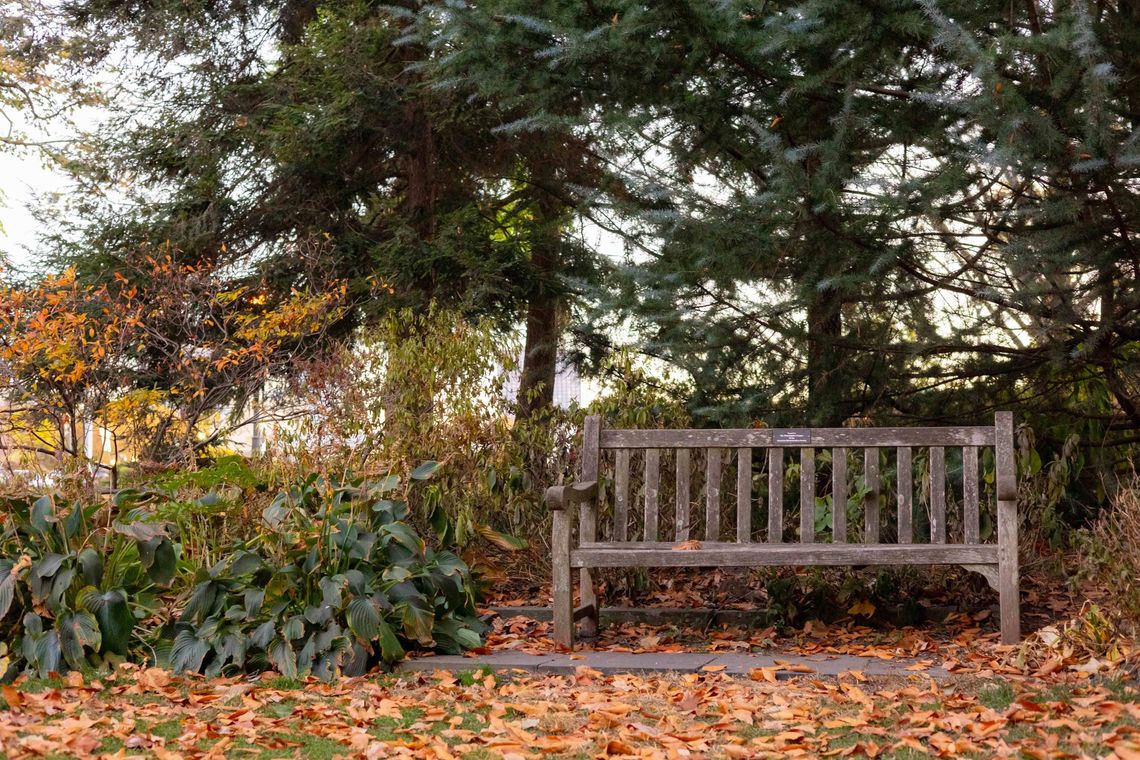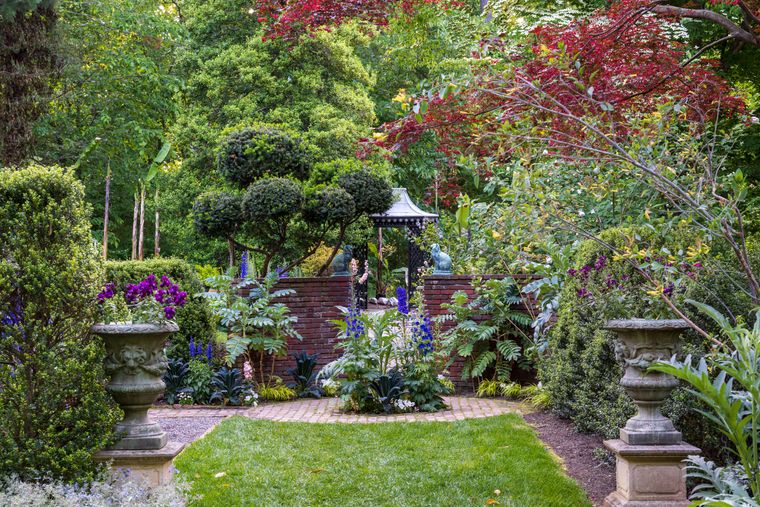
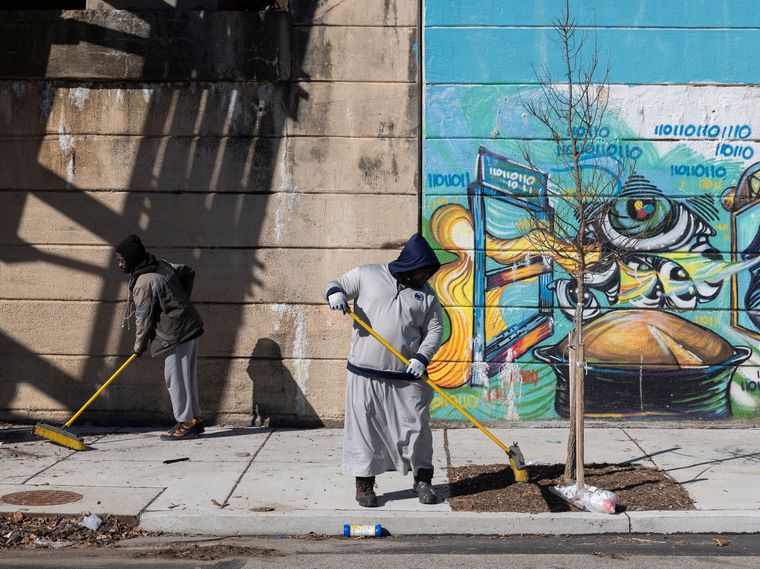
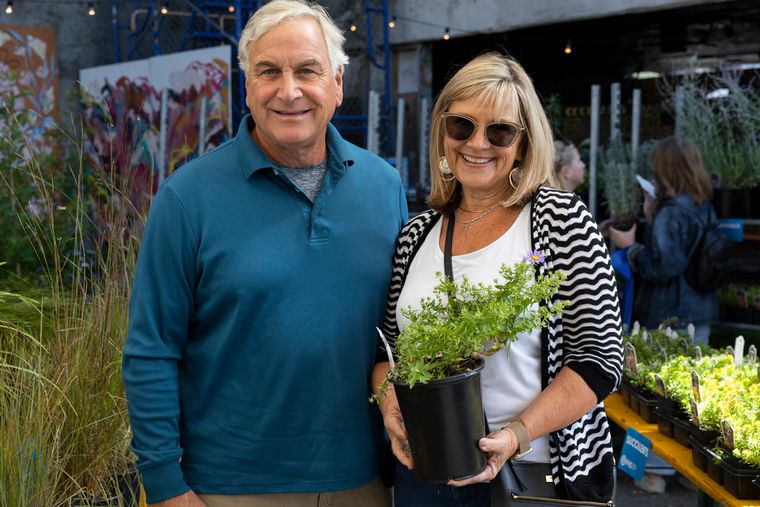
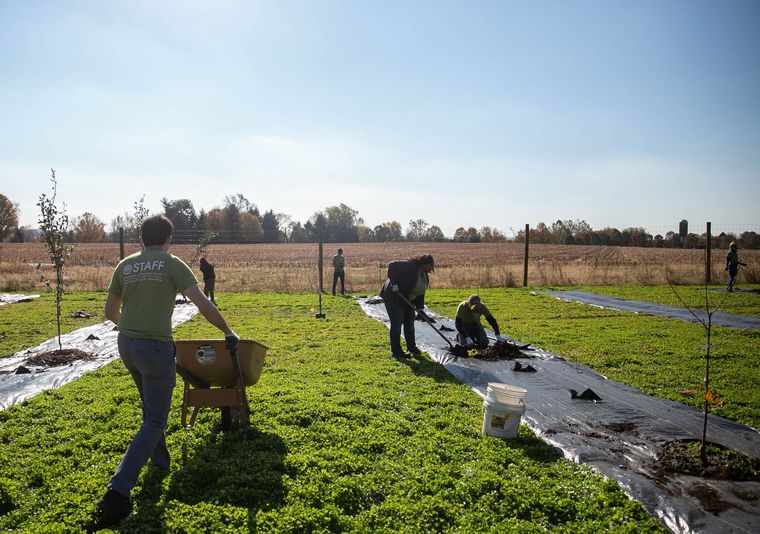
Why You Shouldn't Rake Your Leaves
seasonal tips
sustainable gardening

By Kristen Rice
Every year, native trees and plants brighten our fall days with a vibrant gradient of warm colors! When these leaves begin to fall, it's Nature's signal that cooler weather and shorter days are here. This November, instead of rushing out to rake them all up, PHS asks you to consider the benefits that leaves offer us.
Once they land on the ground, their main role — providing shade, filtering air, and creating beauty — may be done, but the part they play in your landscape is far from over. In fact, some of their most vital work is still to come. Utilizing leaves for compost and throughout your garden is a way to reduce the amount of yard trimmings that accounts for 13% of the garbage that is placed in landfills in America. Learn to appreciate fallen leaves and use them to create a healthy, sustainable garden and lawn this season with these tips from the experts at PHS.
"Leaves are the perfect ingredient for your compost pile." - Sally McCabe.
Leaves Are Great For Composting
Besides painting a stunning sight as they reach the ground, leaves possess essential benefits. Leaves are a helpful addition to any compost bin because of their insulation properties. Use the “lasagna method" and layer food scraps underneath a layer of leaves to increase decomposition and deter pests from burrowing into your compost. "Leaves are the perfect ingredient for your compost pile," says Sally McCabe, PHS Associate Director of Community Education. "A mix of different leaf types is best," she says. "They are a great source of carbon and full of nutrients." McCabe likes to run the lawnmower over her leaves before mixing them in, as shredded leaves work best.
Leaves Are Ideal for Garden Beds
If composting isn't your thing, leaves can be used as mulch for garden beds and landscaping. "I spread the shredded leaves over my garden beds as a layer of insulation," she says. McCabe also values the microorganisms found in leaves that feed the soil over the winter. Leaf mulch also retains soil moisture and heat.
Leaves Provide Vitamines & Nutrients for Your Yard
Fallen leaves contain carbon, nitrogen, phosphorous, potassium, calcium, magnesium, and sulfur. These organic elements all play vital roles in improving your soil’s health and, in turn, will promote the growth of healthy plants and food crops come springtime.
"Fallen leaves provide many benefits to the environment, acting as a natural mulch and adding nutrients to the soil as they break down." - Mindy Maslin
“Leave” Them Alone
If you have a yard with grass and vegetation, leave your leaves where they fall! Think of the leaves in your yard as one warm and heavy blanket, sheltering everything underneath it from the cold season. Leaves are a great barrier from frost and the bitter cold of winter. Also, many native animals and insects seek shelter in leaves during the winter. While it may be necessary to rake some leaves off a walkway or away from a drain, leaving a base layer wherever possible can positively impact native wildlife.
Because PHS encourages everyone to choose sustainable alternatives whenever possible, think twice before raking. "Fallen leaves provide many benefits to the environment, acting as a natural mulch and adding nutrients to the soil as they break down," says Mindy Maslin, Program Manager, PHS Tree Tenders. Instead of contributing to landfills filling up, choose to do something helpful for the environment this fall!
Learn more about trees by becoming a PHS Tree Tender and help PHS improve the health and well-being of those living in the greater Philadelphia region.

